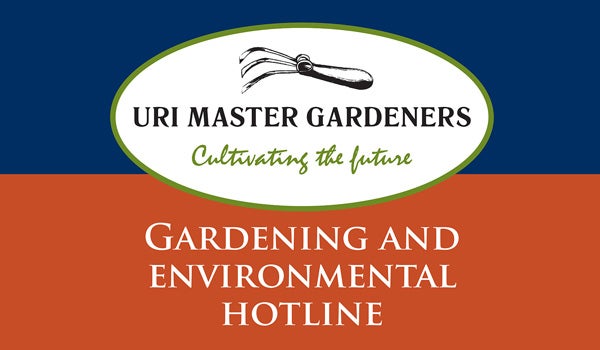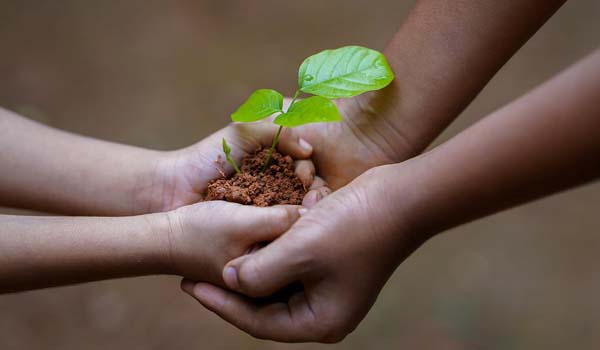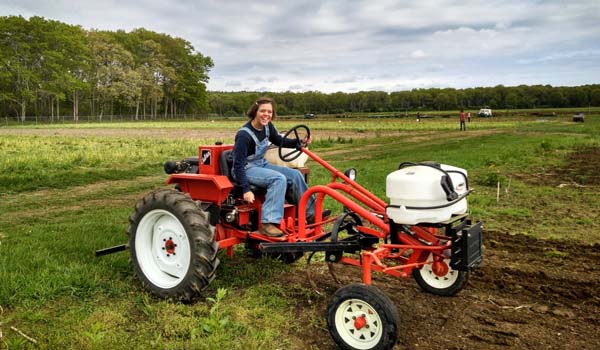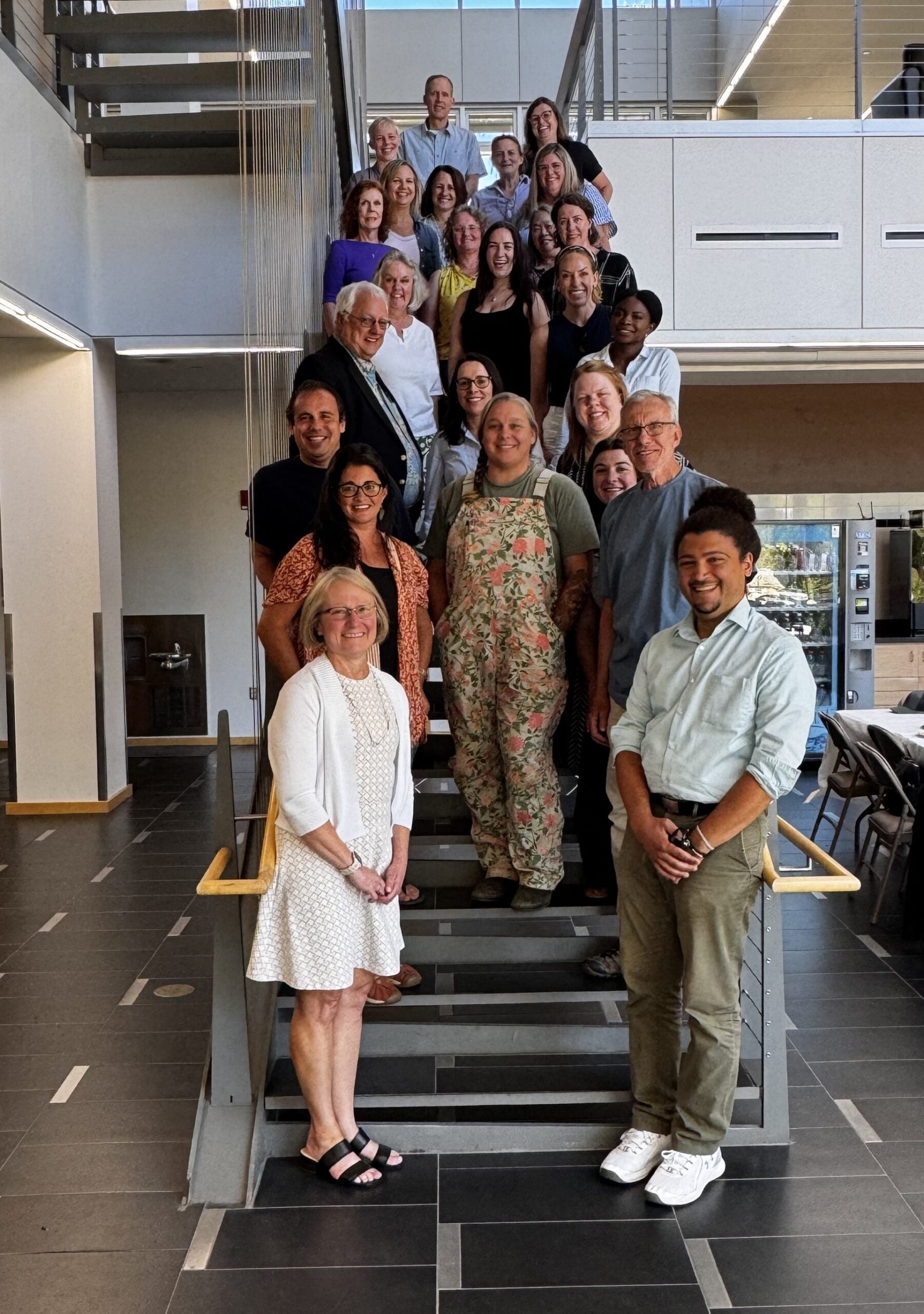Cooperative Extension provides non-formal education and learning opportunities to people throughout the United States—serving farmers and rural communities as well as those in urban areas. In Rhode Island, we strive to reach every corner of the state, delivering science-based information through our educational programs and services to help people make informed decisions in their daily lives.
To highlight the breadth of our impact, we’ve developed a new ArcGIS map dashboard showcasing the many programs offered by URI Cooperative Extension and the number of cities and towns we reach. Check it out!
Learn more about Cooperative Extension and our history to discover how we’ve been making a difference for generations.
News and Stories
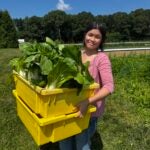 Hands-on research in action: CELS to host Research and Extension Fellowship Symposium Dec. 10 December 4, 2025 - Annual symposium to showcase work of URI Fellows in energy, agriculture and food systems, summer research and outreach, on topics from brain health to veggie trials
Hands-on research in action: CELS to host Research and Extension Fellowship Symposium Dec. 10 December 4, 2025 - Annual symposium to showcase work of URI Fellows in energy, agriculture and food systems, summer research and outreach, on topics from brain health to veggie trials Rhody grown: Real trees support local farmers December 1, 2025 - Tips and trends when picking out this year’s Christmas tree
Rhody grown: Real trees support local farmers December 1, 2025 - Tips and trends when picking out this year’s Christmas tree Colonial gardens around us November 24, 2025 - URI Master Gardeners nurture history and offer plant-based lessons still applicable today
Colonial gardens around us November 24, 2025 - URI Master Gardeners nurture history and offer plant-based lessons still applicable today Growing Together: URI Master Gardeners’ Partnership with Mount Hope Farm November 20, 2025 - Over the past decade, the URI Master Gardener Program has played a critical role in helping transform the community garden at Mount Hope Farm into an accessible, productive, educational, and sustainable community asset. The farm will now transition into being a part of the Master Gardeners’s alumni network.
Growing Together: URI Master Gardeners’ Partnership with Mount Hope Farm November 20, 2025 - Over the past decade, the URI Master Gardener Program has played a critical role in helping transform the community garden at Mount Hope Farm into an accessible, productive, educational, and sustainable community asset. The farm will now transition into being a part of the Master Gardeners’s alumni network.
Events
URI Cooperative Extension
Kathleen M. Mallon Outreach Center
3 East Alumni Avenue
Kingston, RI 02881
p: 401-874-2900
coopext@uri.edu
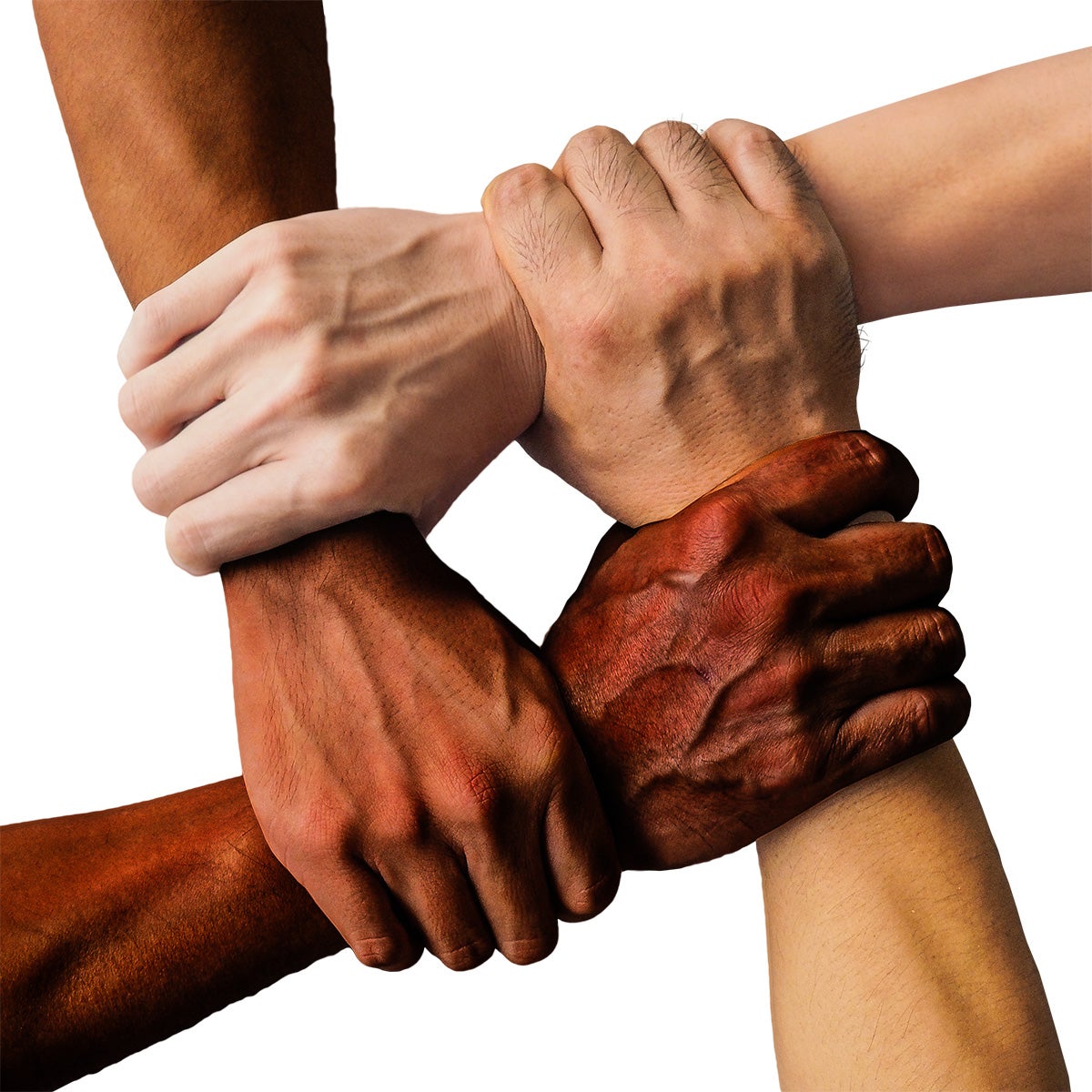
We are committed to Justice, Equity, Diversity and Inclusion (JEDI)
Learn moreThe University of Rhode Island occupies the traditional stomping ground of the Narragansett Nation and the Niantic People. We honor and respect the enduring and continuing relationship between the Indigenous people and this land by teaching and learning more about their history and present-day communities, and by becoming stewards of the land we, too, inhabit.

